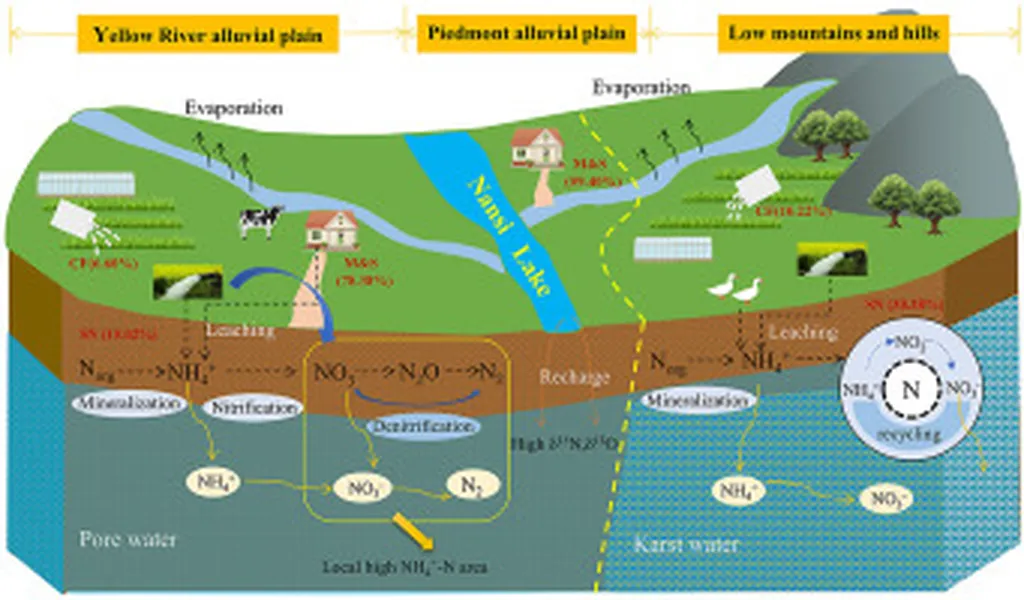In the heart of Poland, researchers from the University of Wrocław have made a significant stride in understanding nitrogen transformations in groundwater, a discovery that could reshape how we approach water quality management and agricultural practices. Led by Dr. S. Deb from the Institute of Geological Sciences, the study, published in the journal *Biogeosciences* (which translates to *Life Sciences* in English), integrates isotope analysis and microbial studies to shed light on nitrogen cycling pathways in nitrate-rich groundwaters.
The research focuses on an agricultural area utilizing organic fertilizer derived from wastewater generated during yeast production. Groundwater samples with elevated nitrate concentrations were subjected to controlled laboratory incubations, employing a novel low-level 15N tracing strategy. This approach allowed the team to investigate microbial processes with unprecedented precision.
Isotope analyses of nitrate, nitrite, and nitrous oxide (N2O), coupled with microbial gene quantification via quantitative polymerase chain reaction (qPCR), revealed a fascinating shift. Initially, archaeal-driven nitrification dominated the scene. However, as conditions turned suboxic post-incubation and glucose was added, bacterial denitrification took the reins. “This shift was quite remarkable,” said Dr. Deb. “It highlights the dynamic nature of microbial communities and their adaptability to changing environmental conditions.”
The team employed the Isotope FRactionation And Mixing Evaluation (FRAME) model to trace and quantify these nitrogen cycling pathways. The model identified bacterial denitrification as the dominant pathway of N2O production, a finding supported by increased abundance of specific genes (*nosZI*, *nirK*, and *nirS*) and observed isotope effects.
Simultaneously, the researchers observed that most nitrite was likely produced through nitrification processes linked to dissolved organic nitrogen (DON) oxidation. Nitrate reduction, on the other hand, had a minor contribution to the total nitrite pool. “This is a crucial insight,” Dr. Deb explained. “It challenges our conventional understanding of nitrite production in groundwater systems.”
The study demonstrates the efficacy of integrating multi-compound isotope studies and microbial analyses to unravel nitrogen cycling mechanisms. This approach provides a robust framework for addressing nitrogen pollution in groundwater systems, a pressing issue in agricultural areas worldwide.
The implications of this research are far-reaching, particularly for the energy sector. Nitrate pollution in groundwater can significantly impact water treatment processes, leading to increased energy consumption and operational costs. By understanding and managing nitrogen cycling pathways more effectively, energy providers can optimize water treatment processes, reduce energy consumption, and lower operational costs.
Moreover, the findings could inform the development of more sustainable agricultural practices. By minimizing nitrate leaching into groundwater, farmers can reduce the need for energy-intensive water treatment processes, contributing to a more sustainable and energy-efficient agricultural sector.
As we grapple with the challenges of climate change and strive for more sustainable practices, research like this offers a beacon of hope. By unraveling the complex web of nitrogen transformations in groundwater, Dr. Deb and his team have provided valuable insights that could shape the future of water quality management and agricultural practices. Their work underscores the importance of interdisciplinary research in addressing global challenges and paves the way for more sustainable and energy-efficient solutions.

